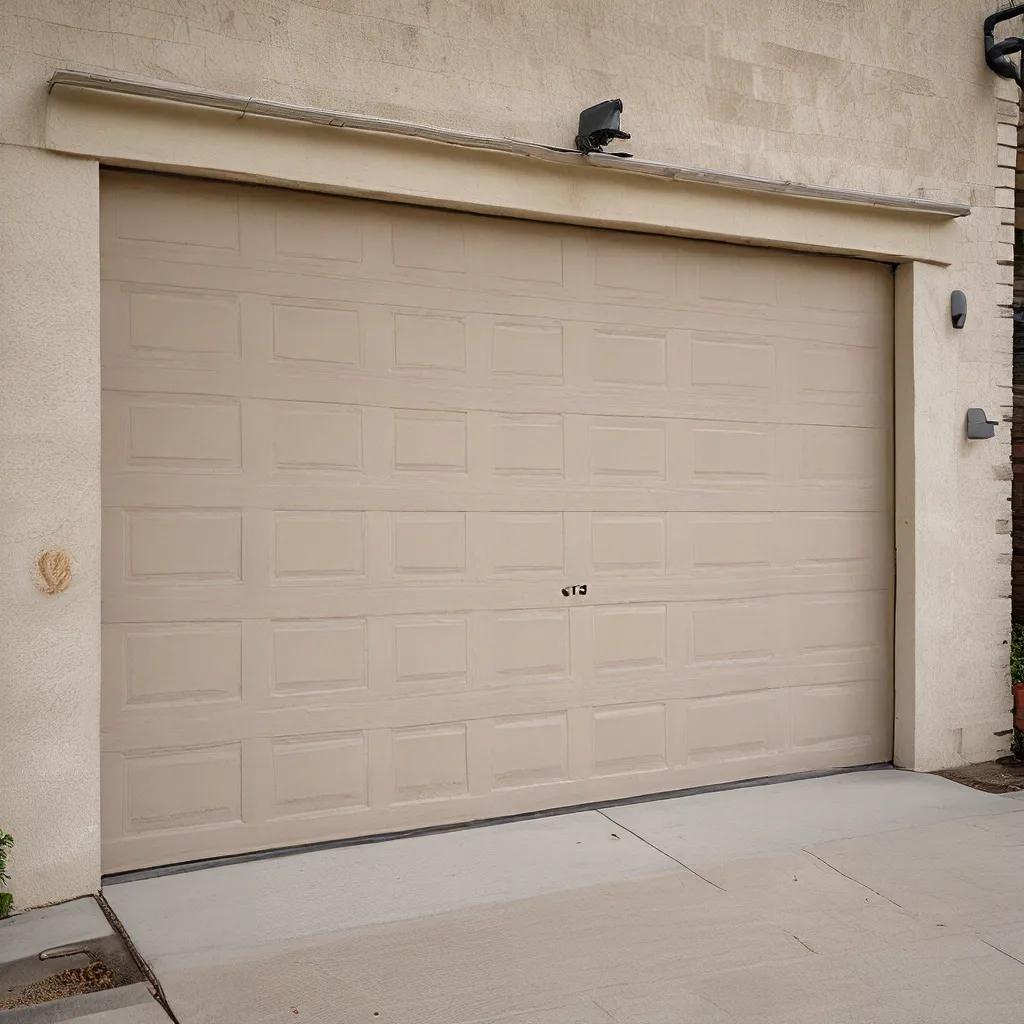
Are you tired of the constant rumbling and clanking every time your garage door opens and closes? Excessive noise can be not only annoying but also a sign of underlying issues with your door’s operation. Fortunately, there are several proven strategies and techniques you can employ to reduce the noise levels and enjoy a more peaceful home environment.
Understanding the Causes of Garage Door Noise
Garage door noise can stem from a variety of sources, including the door mechanics, the opener, and even the door material itself. Some common culprits include:
-
Worn or Loose Hardware: Over time, the various components of your garage door, such as hinges, rollers, and springs, can become worn or loose, leading to rattling and grinding noises.
-
Improper Lubrication: Insufficient or improper lubrication of the moving parts can cause increased friction, resulting in squeaking and screeching sounds.
-
Misaligned Door: If your garage door is not properly aligned, it can rub against the tracks, generating unwanted scraping or rubbing noises.
-
Outdated Garage Door Opener: Older or outdated garage door openers may use noisier chain-driven mechanisms, which can be more disruptive than modern belt-driven or screw-driven models.
-
Door Material: Certain door materials, such as steel, can be more prone to vibration and resonance, amplifying the overall noise levels.
Effective Strategies for Quieter Garage Door Operation
To achieve a quieter garage door operation, consider implementing the following strategies:
-
Lubricate Moving Parts: Regularly lubricate the moving parts of your garage door, such as the rollers, hinges, and springs, using a silicone-based lubricant or white lithium grease. This can help reduce friction and minimize squeaking and grinding noises.
-
Adjust and Align the Door: Ensure that your garage door is properly aligned and balanced. This may involve adjusting the springs, rollers, and tracks to ensure smooth, silent operation. Consider hiring a professional door technician to perform this task if you’re not comfortable doing it yourself.
-
Upgrade to a Quieter Opener: If your garage door opener is older or particularly noisy, consider upgrading to a belt-driven or screw-driven model. These types of openers are generally quieter and more efficient than traditional chain-driven models.
-
Insulate the Door: Adding insulation to your garage door can help dampen the vibrations and resonance that contribute to noise. This is especially beneficial if you have a steel or aluminum door.
-
Isolate Vibrations: Install rubber dampers or gaskets between the door and the track to help absorb vibrations and prevent them from being transmitted to the surrounding structure.
-
Address Worn or Loose Components: Regularly inspect your garage door for worn or loose components, such as rollers, hinges, and springs, and replace them as needed. This can help eliminate rattling and grinding noises.
-
Consider a Garage Door Replacement: If your existing garage door is extremely noisy and the above strategies don’t provide the desired results, it may be time to consider a complete door replacement. Newer garage door models, especially those made of composite or fiberglass materials, can offer a quieter and more efficient operation.
Maintaining a Quiet Garage Door
Achieving a quiet garage door operation is not a one-time fix. It requires ongoing maintenance and attention to ensure optimal performance. Here are some tips to help maintain a quiet garage door:
-
Regular Inspections: Conduct periodic inspections of your garage door, checking for any loose or worn components, as well as proper alignment and lubrication.
-
Preventive Maintenance: Develop a regular maintenance schedule to lubricate the moving parts, adjust the door’s balance, and address any issues before they become more extensive and costly.
-
Professional Service: Consider scheduling annual or bi-annual professional servicing for your garage door. A qualified technician can perform a comprehensive inspection, identify any underlying problems, and recommend the appropriate solutions.
-
Noise-Dampening Accessories: Explore the use of noise-dampening accessories, such as rubber inserts or sound-absorbing pads, which can be installed between the door and the track to further reduce noise levels.
By following these tips and techniques, you can transform your noisy garage door into a quiet, smooth-operating asset that enhances the overall comfort and appeal of your home.
Remember, a well-maintained and properly functioning garage door not only provides a quieter environment but also ensures the long-term durability and value of your home. If you’re unsure about any aspect of your garage door’s operation or need professional assistance, don’t hesitate to reach out to a reputable door repair and installation service in your area.


